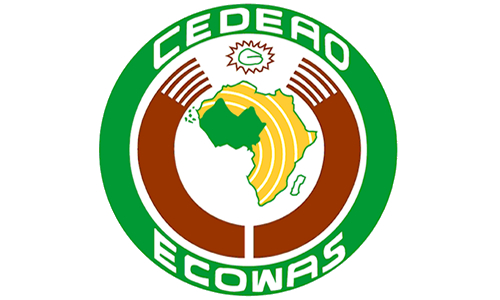 Mr Emmanuel Bombande, a Deputy Minister for Foreign Affairs and Regional Integration, has said the Heads of State of the Economic Community of West African States (ECOWAS) are working to abolish resident permits for the citizens in member states.
Mr Emmanuel Bombande, a Deputy Minister for Foreign Affairs and Regional Integration, has said the Heads of State of the Economic Community of West African States (ECOWAS) are working to abolish resident permits for the citizens in member states.
He said they also mandated the ECOWAS Commission to work out the modalities for the adoption and eventual introduction of the biometric identity cards for Community citizens, which started in January this year.
Mr Bombande made these remarks in Acçra at a media seminar on the theme: “ECOWAS Protocols on Good Governance and Democracy; and its Provisions on Pro-Poor Policies and Economic Redistribution”.
It was organised by the Media Foundation for West Africa with support from OXFAM-IBIS, Ghana.
He said the expectation of ECOWAS leaders was that the measures would enable member states to create an enlarged market to enhance competitiveness and development.
The Deputy Foreign Minister said the enlarged market would also enable industries and producers to explore the economies of scale and promote market specialisation that would eventually lead to improved terms of trade for the entire sub-region.
He said it was important to note that a single West African market, with a population of almost 350 million, had the potential of increasing the Region’s bargaining power and vis-à-vis other regions and trading communities.
Mr Bombande explained that, consequently, the initiatives would lead to the promotion of pro-poor policies and fair economic redistribution and better standards of living.
He noted that in spite of the numerous challenges facing member states, it was in their supreme interest to make ECOWAS work.
“Our meeting here today is a clear manifestation of our commitment to forge ahead with the integration process, through the pursuit of pragmatic policies and commitment to the implementation of key Community Protocols, Decisions and Programmes,” he explained.
He said this would pave way for accelerated growth and allow the benefits of the integration process to be felt by the ordinary ECOWAS citizen.
He, therefore, tasked the media, civil society organisations, religious bodies, state institutions, and individuals, to get involved in ECOWAS activities to enable its members to plan a new course for its integration efforts in West Africa and Africa as a whole.
Dr Philip Attuquayefio, a Senior Research Fellow at the Legon Centre for International Affairs and Diplomacy, said more media attention should be paid to measurable data to ascertain the success or otherwise of policy interventions across member states.
He explained that this would help put in perspective how much of the efforts being made were succeeding.
Dr Attuquayefio said that the data and other kinds of information on issues of regional integration should be made available to the public, unless classified; as a way of increasing public awareness and generating public interest in and ownership of the policies pursued in the Sub-region.
He said there appeared to be lack of interest from the media in holding leaders and policy makers accountable for the achievement of agreed benchmarks at the Sub regional level.
He, therefore, suggested that, the media could highlight thematic issues of poverty, thus, in the absence or lack of basic utilities, access to education or quality health care.
The seminar aimed at increasing the participants’ knowledge of ECOWAS, its Protocols on Good Governance and Democracy, as well as frameworks that mandate member states to promote pro-poor policies and fair economic redistribution.
Mr Sulemana Braimah, the Executive Director, Media Foundation for West Africa, said the seminar would enhance the skills of participants in doing effective reporting and programming to popularise ECOWAS Protocols and its frameworks.
At the end of the seminar, a National Network of ECOWAS Reporters in Ghana was instituted.
Source: GNA























